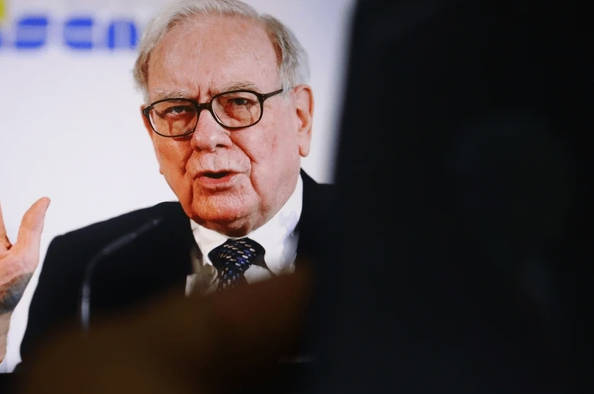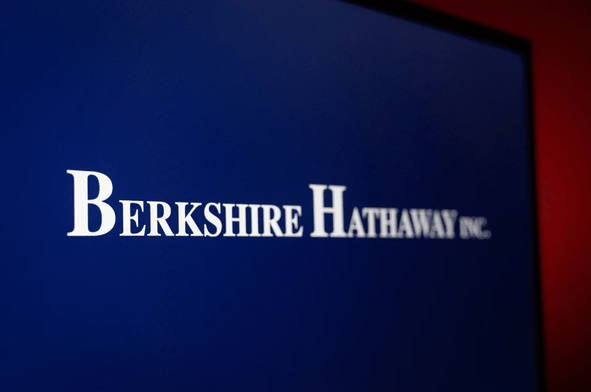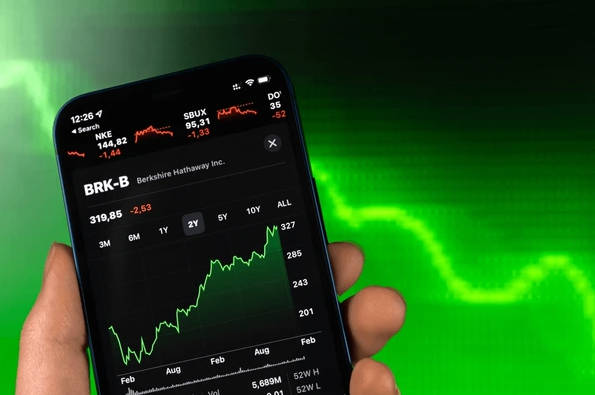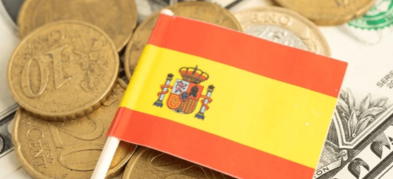
Ultima Markets App
Trade Anytime, Anywhere
Important Information
This website is managed by Ultima Markets’ international entities, and it’s important to emphasise that they are not subject to regulation by the FCA in the UK. Therefore, you must understand that you will not have the FCA’s protection when investing through this website – for example:
- You will not be guaranteed Negative Balance Protection
- You will not be protected by FCA’s leverage restrictions
- You will not have the right to settle disputes via the Financial Ombudsman Service (FOS)
- You will not be protected by Financial Services Compensation Scheme (FSCS)
- Any monies deposited will not be afforded the protection required under the FCA Client Assets Sourcebook. The level of protection for your funds will be determined by the regulations of the relevant local regulator.
Note: Ultima Markets is currently developing a dedicated website for UK clients and expects to onboard UK clients under FCA regulations in 2026.
If you would like to proceed and visit this website, you acknowledge and confirm the following:
- 1.The website is owned by Ultima Markets’ international entities and not by Ultima Markets UK Ltd, which is regulated by the FCA.
- 2.Ultima Markets Limited, or any of the Ultima Markets international entities, are neither based in the UK nor licensed by the FCA.
- 3.You are accessing the website at your own initiative and have not been solicited by Ultima Markets Limited in any way.
- 4.Investing through this website does not grant you the protections provided by the FCA.
- 5.Should you choose to invest through this website or with any of the international Ultima Markets entities, you will be subject to the rules and regulations of the relevant international regulatory authorities, not the FCA.
Ultima Markets wants to make it clear that we are duly licensed and authorised to offer the services and financial derivative products listed on our website. Individuals accessing this website and registering a trading account do so entirely of their own volition and without prior solicitation.
By confirming your decision to proceed with entering the website, you hereby affirm that this decision was solely initiated by you, and no solicitation has been made by any Ultima Markets entity.
I confirm my intention to proceed and enter this website Please direct me to the website operated by Ultima Markets , regulated by the FCA in the United KingdomWhat is the Most Expensive Stock Right Now?
When it comes to the stock market, the price of a stock often sparks curiosity. Many investors are fascinated by high-priced stocks, as they symbolize a company’s perceived value and success. However, a stock’s price is not always indicative of its true worth. So, what is the most expensive stock right now, and what does its hefty price tag mean for investors?
Understanding Stock Prices
Before diving into what is the most expensive stock right now, it’s important to understand what stock price represents. The price per share is influenced by a number of factors, including company performance, investor demand, and corporate decisions such as stock splits. However, a high stock price doesn’t always equate to better financial performance. In fact, some companies intentionally maintain a high stock price to attract a certain kind of investor, one who is focused on long-term growth.
The Most Expensive Stock: Berkshire Hathaway Class A (BRK.A)
As of now, the title of the most expensive stock belongs to Berkshire Hathaway Class A (BRK.A), which is priced at over $755,000 per share. This price is a reflection of Berkshire Hathaway’s decades-long success, strong leadership, and strategic investments. Founded by Warren Buffett, one of the most successful investors of all time, Berkshire Hathaway has become synonymous with value investing and long-term financial growth.

Beyond the price tag, Berkshire Hathaway is also:
- One of the largest companies in the world, consistently ranking in the global top 10 by market capitalization.
- The most expensive stock listed on U.S. exchanges, far surpassing every other publicly traded company in price-per-share terms.
Why Is Berkshire Hathaway So Expensive?
Several factors contribute to Berkshire Hathaway’s high stock price:
- No Stock Splits: Unlike most companies, Berkshire Hathaway has never split its Class A shares. A stock split divides the number of shares while maintaining the overall value, making shares more accessible at a lower price. Buffett, however, has refused to split the stock, believing that it would attract short-term investors and shift the company’s long-term focus .
- Long-Term Growth: Berkshire Hathaway’s stock price reflects its strong, long-term performance. The company has made successful investments in companies like Apple, Coca-Cola, and American Express, consistently delivering significant returns. The stock price has climbed steadily over the years, earning Berkshire Hathaway a reputation as one of the most successful investment firms globally.
- Exclusivity: The high price also serves as a form of exclusivity. By keeping the stock price high, Berkshire Hathaway filters out short-term traders and ensures that only investors with significant capital and a commitment to long-term growth can participate in the ownership of the company .
- Warren Buffett’s Legacy: As the face of the company, Warren Buffett’s leadership has contributed greatly to the company’s reputation. Investors often view purchasing Berkshire Hathaway stock as a way to invest in Buffett’s investing philosophy, which has been highly successful over the years.
Recent Developments Impacting Berkshire Hathaway
While Berkshire Hathaway has enjoyed remarkable long-term success, several recent developments have influenced how investors view the stock. In a rare shift from its traditional approach, the company made a high-profile move into big tech by taking a $4.9 billion stake in Alphabet (GOOGL), the parent company of Google. This marks a notable departure from Berkshire’s historic caution toward large technology positions and highlights its willingness to adapt when it sees attractive long-term value.

At the same time, Berkshire has faced some headwinds. The company recorded a $3.8 billion write-down on its investment in Kraft Heinz (KHC), and its operating income has slipped by around 4% in recent reporting, reflecting pressure in parts of its portfolio. Its insurance arm, particularly GEICO, has also grappled with rising claims costs, which have weighed on margins. Despite these challenges, sentiment around the stock remains broadly constructive.
Analysts at Edward Jones recently upgraded Berkshire Hathaway to a “Buy,” pointing to its substantial cash reserves and the view that the stock has lagged the broader market enough to offer a more attractive entry point for long-term investors.
Comparison With Other High-Priced Stocks
While Berkshire Hathaway’s stock price is the most expensive, it’s not the only high-priced stock in the market. If you are wondering what is the most expensive stock right now aside from Berkshire, several other companies boast high per-share prices:
- Lindt & Sprüngli (LISN): This Swiss chocolate maker regularly has a stock price exceeding $100,000 per share. Known for its premium products, the company’s stock has steadily increased over time, making it a coveted investment for long-term investors.
- NVR Inc. (NVR): A leading U.S. homebuilding company, NVR’s shares trade around $5,000 per share. The company has a strong reputation for growth and profitability, particularly in the homebuilding sector.
- Seaboard Corporation (SEB): This multinational agribusiness and transportation company regularly sees its stock price hover over $4,000 per share. Despite the high price, Seaboard’s diversified operations have ensured steady growth, making it a solid pick for long-term investors.
Should You Invest in High-Priced Stocks?
While the allure of high-priced stocks like Berkshire Hathaway Class A can be strong, it’s important to remember that the price per share doesn’t tell you whether an investment is right for you. What matters more are the company’s fundamentals, growth prospects, and how it fits your overall strategy and risk tolerance.
High-priced stocks can also be less liquid, simply because fewer investors are able or willing to trade them in large sizes. That’s where Berkshire Hathaway’s Class B shares (BRK.B) come in. Introduced in 1996, the B shares were created specifically to give smaller investors a more accessible way to own a piece of Berkshire without needing hundreds of thousands of dollars for a single Class A share. They trade at a much lower price per share, making them a practical alternative for most retail traders who still want exposure to Warren Buffett’s conglomerate but don’t need the full voting power and exclusivity of BRK.A.

Conclusion
If you’re still wondering what is the most expensive stock right now, the simple answer is Berkshire Hathaway Class A. But the more useful takeaway for investors is not the headline price itself, it’s what sits behind it: decades of compounding, a deliberate decision not to split the shares, and a business built around long-term value rather than short-term hype.
Knowing what is the most expensive stock right now can be an interesting starting point, but it shouldn’t be the reason you buy. Whether you’re considering BRK.A, the more accessible BRK.B, or other high-priced names like NVR or Lindt & Sprüngli, the real work is the same, understand the business, assess the risks, and decide whether it fits your goals and risk tolerance.
High share prices may turn heads, but your results will always come from the quality of the company you own, not just the number printed next to the ticker.
Disclaimer: This content is provided for informational purposes only and does not constitute, and should not be construed as, financial, investment, or other professional advice. No statement or opinion contained here in should be considered a recommendation by Ultima Markets or the author regarding any specific investment product, strategy, or transaction. Readers are advised not to rely solely on this material when making investment decisions and should seek independent advice where appropriate.












